Profile: Robert De Niro
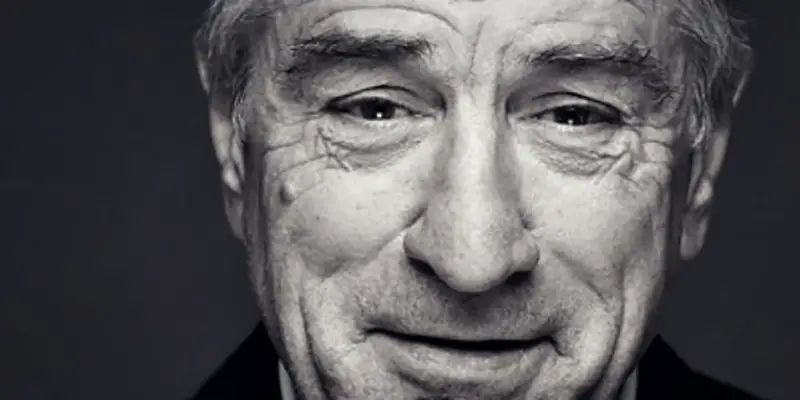
Lauren is 20 years old and is a Multimedia Journalism…
Legend is a word that is batted around pretty easily these days, but one person who is fully deserving of that title is Robert De Niro. One of the most celebrated actors of his generation, the New York born actor has ascended Hollywood’s ranks and is now considered by many to be on par with the likes of Marlon Brando.
With seven Academy Awards nominations (two wins), as well as being nominated for eight Golden Globes (one win) and six BAFTAS, De Niro is held in high regard by the industry and public alike, in spite of some questionable career decisions in recent years.
Born in Greenwich Village, New York City in 1943, the actor shot to prominence in the 1970s as he began a creative collaboration with fellow New Yorker Martin Scorsese. Known for his intense method acting style, De Niro has created a varied body of work and is considered a stalwart of the industry.
Early work (1960s – 1970s)
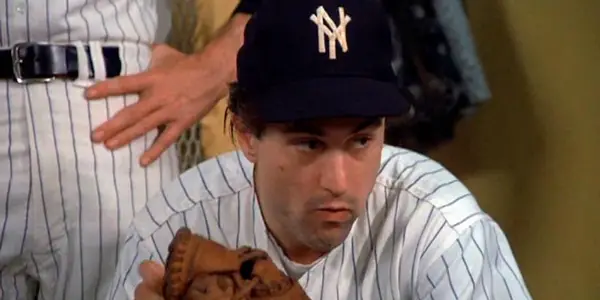
De Niro harboured a passion for acting from a young age, and studied the craft at the Stella Adler Conservatory and Lee Strasberg’s Actors Studio. He began working as an actor in the 1960s, and his first film role was in Brian DePalma’s The Wedding Party (1963), a farcical film which was only released in 1969 after both DePalma and De Niro began to gain widespread attention.
It was Bang the Drum Slowly (1973), along with the release of Mean Streets the same year, that brought De Niro mainstream success. The former saw the actor portray a terminally ill baseball player, an early example of the range he possessed as a performer and a role that still endures as one of his finest. 1973 also saw De Niro begin a collaborative process with Martin Scorsese, arguably the most important period of his career.
Martin Scorsese (1973-1995)
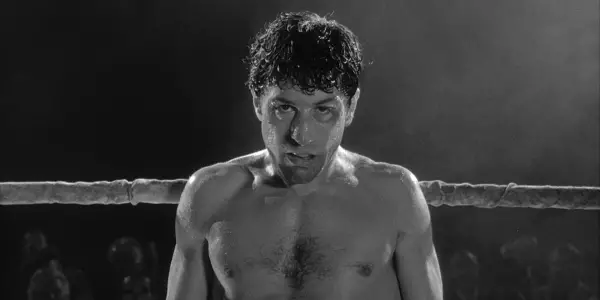
It was working with Martin Scorsese that shot De Niro to mainstream success, with Mean Streets kickstarting a creative collaboration that has thus far spanned eight films. Mean Streets saw De Niro star opposite Harvey Keitel as Johnny Boy, a reckless gambler. As Johnny Boy makes his epic entrance onscreen, bathed in red light, arms draped around two women as The Rolling Stones’ Jumpin Jack Flash plays, there is a sense of jubilation and promise at the heady heights that were to come.
Johnny Boy’s penchant for self destruction is a common theme in De Niro’s roles, with damaged, unhinged characters becoming more prominent throughout his career. No character fit this archetype more than Travis Bickle, the role De Niro took in his next outing with Scorsese, Taxi Driver (1976).
A Vietnam war veteran, Bickle is socially inept and disgusted at the crime and disorder he sees on the streets of New York as he works the graveyard shift as a cab driver. Considered one of his best performances, it was Taxi Driver that catapulted De Niro to critical adoration and solidified his rich relationship with Scorsese.
New York was a running theme throughout much of De Niro and Scorsese’s collaborative efforts, as were characters with a penchant for violence and self destruction. Even seemingly lighter roles in the likes of New York, New York (1977) and The King of Comedy (1982) saw De Niro bring in elements of a violent temper.
Considered by many to be the magnum opus of both De Niro and Scorsese is 1980’s Raging Bull, which saw the actor portray real life boxer Jake LaMotta. The trademarks of a De Niro/Scorsese character are there – self destructive behaviour, personal demons and violent outbursts, to name but a few – but never have they been so incredibly realised.
It was with Raging Bull that De Niro took his method acting, which he was well known for by that point, to a new level, training to become a middleweight boxer and even competing in matches to fully embody LaMotta in his glory days, before taking time out to gain 60 pounds to play the boxer in later life. This intense dedication was what made De Niro stand out as an actor, and granted his performance near unprecedented levels of authenticity, solidifying his status as a living legend.
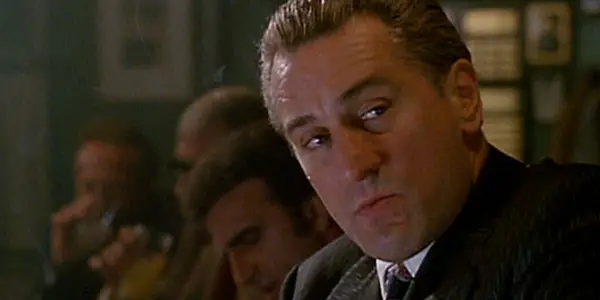
It is also impossible to write a profile on Robert De Niro without mentioning Goodfellas (1990) or Cape Fear (1991), both of which proved, over a decade on from the roles that made him famous, he was far from a one-trick pony. In Goodfellas, he embodied the role of James “Jimmy the Gent” Conway, inspired by real life mobster James Burke. An older De Niro took on the challenge of playing a higher ranking mobster in his stride, delivering a pitch perfect turn that helped to solidify the film as a genre classic.
Cape Fear saw De Niro play a disturbed criminal, channelling elements of Travis Bickle and his method acting process to communicate a genuinely disturbing turn, which secured him one of his seven Oscar nominations. Rounding out the De Niro/Scorsese era was Casino (1995), which saw the actor take on the role of Sam “Ace” Rothston, based on real life sports bettor and organised crime associate Frank Rosenthal.
With Scorsese’s distinctive directorial eye, De Niro forged some of the most memorable performances in modern cinema. The actor’s dedication to his craft was never clearer than in his collaborations with the director, and his uncanny ability to play violent, morally ambiguous, and questionable characters was at its height during this time.
1970s – 1990s & directorial work
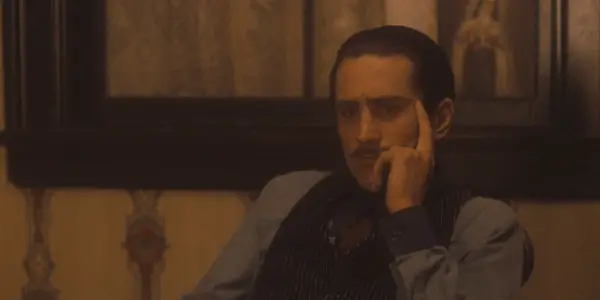
As well as his work with Scorsese, De Niro worked almost constantly from the 1970s onward, building up a huge body of diverse work. It would be impossible to detail everything he did here, but there is no doubt that one of the biggest highlights of his non-Scorsese work is The Godfather Part II (1974). He took on the role of a young Vito Corleone, no easy job considering that none other than Marlon Brando had made his older incarnation of the character so iconic in The Godfather (1972).
Another instance of De Niro’s method acting, the actor lived in Sicily in order to accurately pick up Italian, leading to him becoming the first (and one of the only) actors to win an Oscar for a performance almost entirely in another language. His role charts the journey of Corleone as he becomes the Don of the title, and the quiet menace and sense of authority he brings to a character that could so easily have been a caricature is a testament to his skills as an actor.
Another notable performance came in 1987 when he played Al Capone in The Untouchables. Playing one of the most notorious gangsters of all time is arguably a culmination of what De Niro had been working towards for many years by that point, with his various gangster-based roles.
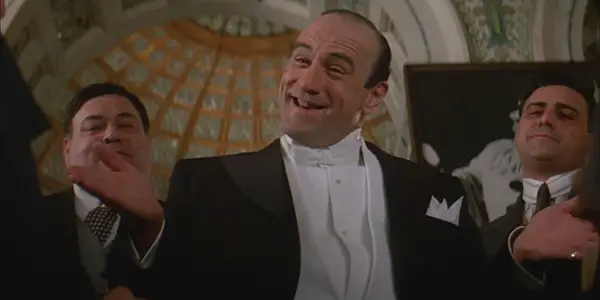
De Niro became known for playing troubled characters, often New Yorkers with Italian roots, with some highlights being in Once Upon a Time in America (1984) and 1900 (1976), the latter of which saw him play an Italian character. Whilst much of his work, particularly at the height of his career, was of this nature the actor was never typecast, moving into a variety of different roles as time went on.
De Niro‘s broader range was showcased with the likes of the comedy Analyze This (1999) and a contemporary adaption of Dickens’ novel Great Expectations (1998). The actor’s critical hot streak had come to an end, with some of his films garnering less than adoring reactions, but given the volume of work he produced in this period this seemed somewhat inevitable. In watching any film he features in from the 1970s to the 1990s, De Niro’s dedication to the craft is clear – one particular example being his turn as the creature in Mary Shelley’s Frankenstein (1994).
In 1993, De Niro made his directorial debut with A Bronx Tale, which also saw him star alongside Chazz Paliminteri. The film was well received, striking a good balance between nostalgia and realism. It also saw De Niro go against type, playing a law abiding father attempting to keep his son from becoming embroiled with Paliminteri’s mafia boss. It was not until 2007 that De Niro would return to the director’s chair with The Good Shepherd, worth viewing to see how his filmmaking skills have progressed and for Matt Damon’s excellent performance.
Later work (2000-present)
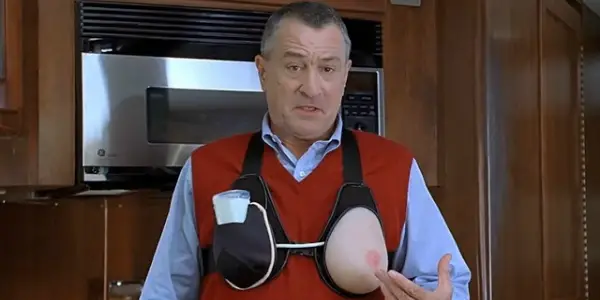
Moving into the 21st century, De Niro continued to work consistently, with comedy becoming a much larger part of his repertoire. Whether or not De Niro can pull off comedy is something that is hotly debated, but Meet the Parents (2000) was a commercial success nonetheless, as the actor took on the role of father-in-law from hell, spawning two sequels in the form of Meet the Fockers (2004) and Little Fockers (2010). The actor has also made some forays into voice work with Shark Tale (2005) and Arthur and the Invisibles (2006).
From 2000 onward, De Niro has undoubtedly made more than a few questionable choices and accusations of phoning in performances in the likes of The Big Wedding (2013) and New Years Eve (2011), the latter of which he hardly features in but is worthy of a mention due to its unending awfulness.
Most recently, Dirty Grandpa (2016) is as upsetting for a De Niro fan as Jack and Jill was for the Al Pacino lovers out there. Whilst many may have accepted that the actor had thrown caution to the wind many films ago, I was still rewatching Taxi Driver and clinging on to the glory days of my favourite actor. Yet, this years offering, which pairs the veteran with Zac Efron and saw them engage in spring break activities, seems like the final straw. We first meet his character when he is caught masturbating by his grandson, and it would be a lie to say it gets better from there.
In spite of the ever-growing amount of questionable material in recent years, De Niro will still occasionally show us he’s still got it, with the likes of The Intern (2015) providing a platform for the actor to give a sweet, moving performance which helps to blot out some of the trauma instilled by Dirty Grandpa. His work with David O. Russell has also proved to be a highlight of recent times, with his supporting turns in Silver Linings Playbook (2012) and Joy (2016) being some of his best offerings in years.
Other work
Outside his work as an actor, De Niro has been an active figure in building up the Tribeca area of New York, another product of his affinity with his city of birth. He is the co-founder of TriBeCa Productions, as well as the Tribeca Film Festival, restaurants Nobu and TriBeCa Grill and the Greenwich Hotel. His dedication has helped establish the Tribeca area, and shows the dedication he has to the city, which is also reflected in his choice of roles as an actor.
Conclusion
In spite of presenting some evidence to the contrary in recent years, Robert De Niro is one of the few actors worthy of the title living legend. With a fierce dedication to his craft, De Niro’s penchant for playing damaged criminals has allowed him to bring multiple layers to seemingly one-note characters. As a man who has gifted the world with some of the greatest cinematic performances put to film, he is probably more than deserving of a few free passes (although Dirty Grandpa really was testing everyone’s limits).
What do you think of Robert De Niro? What’s your favorite De Niro film? Share your views in the comments section!
Does content like this matter to you?
Become a Member and support film journalism. Unlock access to all of Film Inquiry`s great articles. Join a community of like-minded readers who are passionate about cinema - get access to our private members Network, give back to independent filmmakers, and more.
Lauren is 20 years old and is a Multimedia Journalism student based in Glasgow, Scotland. She is originally from the Shetland Isles and has held a lifelong interest in film, which she documents on her blog apeerieyarn.wordpress.com. She loves Back to the Future and wishes people would stop paying to see Michael Bay movies.










